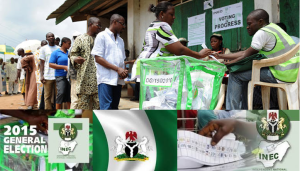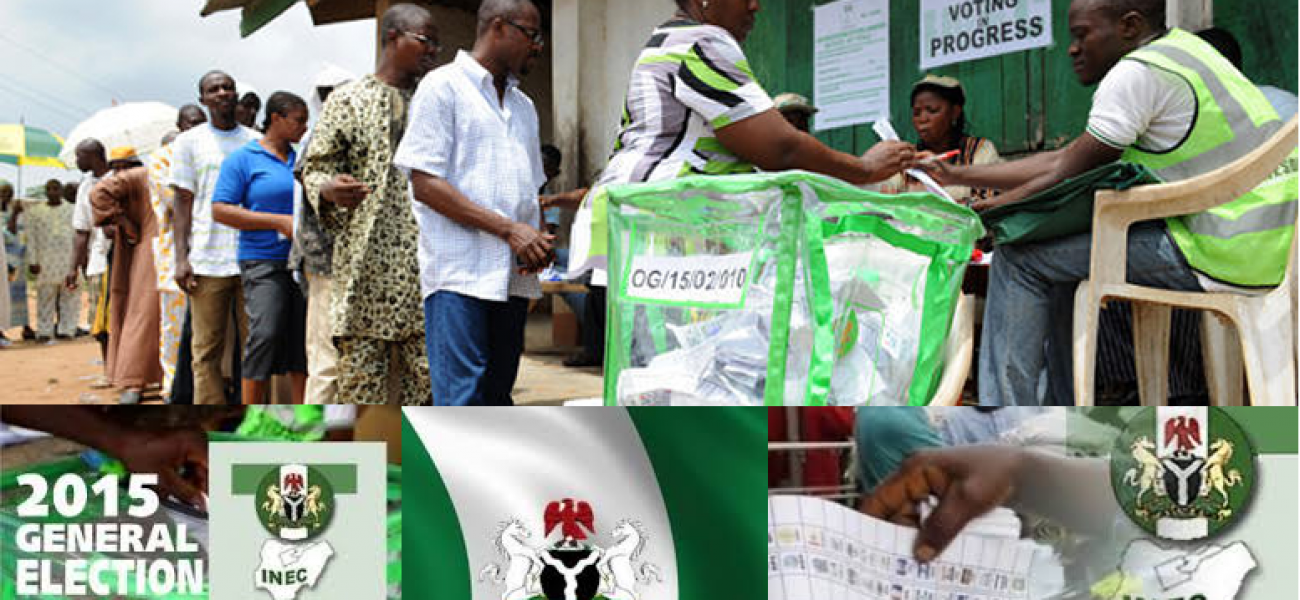 International observers have expressed concerns following the postponement of the 2015 Nigerian General Elections from 14th and 28th February to 28th March and April 11th respectively by Independent National Electoral Commission, (INEC).
International observers have expressed concerns following the postponement of the 2015 Nigerian General Elections from 14th and 28th February to 28th March and April 11th respectively by Independent National Electoral Commission, (INEC).
Firstly, it is important to state that section 26 of the Electoral Act, 2010 (as amended) empowers INEC to postpone elections where there is reason to believe that a serious breach of the peace would occur if the elections hold on a said date. Therefore, the postponement of the elections is within the purview of INEC’s powers following security concerns raised by the National Security Adviser (NSA), that it requires six weeks to put the security situation in the North East in place before elections hold.
However, the postponement has led critics to fear that the NSA’s recommendations are an attempt to politicize INEC’s independence. This is because INEC is the statutory body in charge of the conduct of elections including its postponement thereof. In a statement issued by the United States Secretary of State, John Kerry, he described political interference with INEC as “unacceptable[1]”. The United States Government in its reaction said “it is critical that the Government not use security concerns as a pretext for impeding the democratic process of elections in Nigeria”[2].
There have also been reports[3] that the incumbent Government plans a further postponement of the elections. The House of Representatives on Tuesday, 3rd March 2015 warned against a further postponement of the General Elections or the President’s removal of the INEC Chairman in a manner that would be contrary to section 157(1) of the 1999 Constitution (as amended). Section 157(1) provides that the INEC Chairman can only be removed by a two third majority vote of the Senate where he is unable to discharge his functions or for misconduct.
It is also worthy of note that the elections specifically provide for the time frame which the General Elections may hold in sections 132(2), 76(2), 116(2) and 178(2) for the Presidential and National Assembly Elections and the Gubernatorial and State Houses of Assembly Elections respectively. For instance, elections to the Office of a President under section 132(2) must not hold earlier than 60 days nor later than 30 days before the expiration of the term of office of the last holder of that office.
Also linked to the postponement, is a recent poll data[4] that shows a low level of confidence among the general public that the elections will be free and fair. At the moment, neither the ruling People’s Democratic Party nor the All Progressives Congress has a clear lead according to the poll and there are also fears that candidates are leveraging on Nigeria’s ethnic and religious identities for political gain. This increases the risk of violence if a losing candidate argues that the election is not free. In the 2011 elections, which are considered the fairest elections yet, almost a thousand people died in election related violence[5].
Economically, the postponement of the elections has also increased uncertainty in the foreign exchange markets as recent figures show that the Naira, since the postponement of the elections has significantly weakened against the dollar. It is interesting that while the European Union Election Observation Mission to Nigeria has stated that the rescheduling of the polls has cost it an extra 1.8 million Euros budget to remain in the country, there has been no statement by the Federal Government as to the economic implications that the postponement may have at this dire economic time.
Nonetheless, despite these concerns, many, including the INEC Chairman, Prof. Attahiru Jega, believe that the postponement could turn out to be a blessing in disguise. For instance, in Prof. Jega’s address in the Senate plenary on INEC’s preparedness towards the 2015 General Elections, the Chairman admitted that INEC had made large strides in the distribution of permanent voter cards, (PVC’s) across the country. He noted that while the distribution of PVC’s stood at 68 percent under the original timetable, since the postponement of the elections and extension of the collection of PVC’s to 8th March, 2015, 77 percent of eligible voters have collected their PVC. INEC’s most recent statistics on 5th March 2015 have now put the percentage at 80.
In addition, the extension has given INEC time to produce the 1,000,000 PVC’s that were not available at the date of his address. In a statement credited to Chief Press Secretary to the INEC Chairman, Mr Kayode Robert Idowu, he stated that the cards were ready and will be sent to distribution points for collection. The extension has also given INEC more time to produce the cards and test the card reader machines. Presently, INEC plans to test card readers in 12 states that reflect the 6 geo-political zones of Nigeria on Saturday, 7th March. This is because the use of card readers will be an important apparatus in testing the credibility of the 2015 General Elections.
Furthermore, viewing the issue of security from a different perspective, Nigeria is yet to reach the stage where its elections can be described as a “civil process” in its operations and character. In the press conference held on 7th February 2015 on INEC’s position on the timetable of the 2015 Elections, Professor Jega stated that the Commission was not a security agency that could guarantee the protection of its personnel, voters, adhoc staff and observers. Therefore, it could not dismiss the advice by the National Security Adviser. Hence, unless alternative security arrangements are made, it may be in the interest of the electoral management body to work hand-in-hand with security forces that have become an integral part of the electoral process.
The postponement of the General Elections still presents an opportunity for INEC to work towards delivering credible and better-organized election and mobilize Nigerians to participate fully. Already, the United Kingdom Foreign Secretary, Philip Hammond and the Secretary-General to the United Nations, Ban Ki-moon has urged the Nigerian Government and INEC to respect the new dates and ensure that there are no further postponements. If it succeeds, the Nigerian experience will hopefully provide the expected consolidation of democracy to African countries such as Ivory Coast, Burkina Faso, Togo, Sudan and Tanzania whose elections hold at the latter part of the year.
[1] US condemns postponement of Nigeria elections, http://www.premiumtimesng.com/news/headlines/176448-critical-government-not-use-security-concerns-pretext-impeding-democracy, 5th March, 2015
[2] See footnote 1
[3] Fresh plots to scuttle elections uncovered, http://dailyindependentnig.com/2015/03/fresh-plots-scuttle-elections-uncovered/ , 2nd March, 2015
[4] Nigeria’s Postponed Election: A Powder Keg, The Economist, February 8, 2015
http://www.economist.com/blogs/graphicdetail/2015/02/nigerias-postponed-election
[5] See footnote 1

